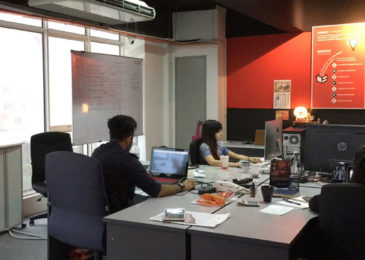A person’s first job plays a highly crucial role in paving the road for a healthy and rewarding career in the future, which is why as a student you must understand its importance and remain well-prepared for it. Campus placements provide the ideal opportunities for students to showcase their intelligence and aptitude.

Students should take these interviews very seriously and must approach them in a planned manner. Your primary aim for a campus interview should be to be able to convey your story and make a lasting impression in the recruiters.
On-campus recruitment interviews offer the chance of a lifetime and you may miss the bus if you are unprepared. Let us take a look at the different ways in which students can ensure a smooth sailing interview.
1. Create a compelling resume.
Your resume is your ticket to reach the recruitment panel so prepare it well. Do not go about copying the CVs of your friends as they may have missed out on an important point or could have made grammatical errors. Begin by reading sample resumes on the internet and accordingly create a crisp CV that has a clean layout and doesn’t make use of fancy colors and fonts. Highlight your skills and achievements and mention the extracurricular activities that you excelled over in college. Remember to edit the document and get it critiqued before you print it. Carry copies of the print-outs on the day of the interview.
2. Practice interviewing.
This should be part of your prep work. You can refine your interview style by looking into the mirror and practicing answers to basic questions like ‘tell us about yourself,’ ‘why should we hire you for this job’ and ‘what are your strengths and weaknesses.’ This reduces the risk of walking into the interview hall without being prepared. You may also schedule an appointment with your career counselor and ask him/her to prepare you for the real thing by reviewing your resume, informing you about the type of questions asked and conducting a mock interview with you.
3. Research the employer.
Do the following to find out about the recruiters coming in –
- Attend the employer information sessions to learn about the organization.
- Search for the organization on the internet and use other online resources like Hoovers, Vault and WetFeet to find out more about the company.
- Start getting social by joining groups and follow organizations on career networking sites like LinkedIn and other social media platforms.
4. Prepare for aptitude tests.
An aptitude test is aimed at making the recruitment process easier by filtering out the candidates. If you haven’t polished your aptitude skills, then you might be pushing yourself closer towards elimination. Aptitude tests are capable of sending you home even before you begin your tryst so start preparing from an early stage.
5. Practice your communication skills.
It is always good to have effective communication skills better. You need not have the perfect English but you should be able to convey what you intend to say. Recruiters are looking for candidates who can express what they think and not necessarily English majors.
6. Update yourself with the latest news and current affairs for GD topics.
Being aware of the current affairs is important as most group discussions (GD) are based on them. Knowing what is happening around you means half the battle won. So make sure you read the newspaper and watch the news channels as it would help you go a long way and boost your confidence level in the GD round.
7. Dress formally and arrive early on the day of the interview.
Once you are prepped for the recruitment process, make sure you reach the venue before time. It will help you avoid unnecessary stress and will ensure a smooth interviewing experience. Also remember to keep an extra copy of your CV and cover letter along with your portfolio, notepad and pen. It is also necessary to dress formally. Recruiters who come from big corporate houses hate wasting time so make sure you carry along all the documents requested.
8. Avoid back-to-back interviews.
Make sure you do not schedule back-to-back interviews in a single day. Don’t do it even if you aspire to appear for all the interviews set up by the university. Scheduling one interview right after the other will be difficult to manage and the two may overlap if the first one stretches or if the recruiters don’t reach on time. You must keep in mind that interviews often run behind schedule and you may get out of your first interview later than expected, which means you will reach late for the next one.
9. If you are confident you’ve done well ask for the recruiters’ contact details.
Once you are done with the entire recruitment process, take leave from the interview panel and thank them for their time. Before exiting the room, ask one of the members when and how you can find out the results of the interview. If they re-direct you to a person outside the room you should ask that person’s name and leave obediently. Otherwise, request for a business card or take down a contact number or email address where you can call or mail to know the status. Your main aim should be to remain in touch with the concerned authorities concerned with your selection process.
10. Follow up with a thank you e-mail.
After you acquire the interviewer’s business card it is time to follow up with a brief thank you letter. It is wise to send a polite e-mail if you have been corresponding the previous discussions via mail. Such a step is useful as it refreshes the memory of the interviewer and boosts your employability when the second round of interview is yet to happen.
First jobs are the stepping stone to one’s entire career and so students must try their best to land the best possible opportunity. But it is important to understand that even if one attempt does not materialize into an offer letter, there is no reason to be disappointed as there are still numerous job opportunities out there that are waiting to be tapped. All you need to do is keep yourself abreast about the openings by signing up on job portals and following the latest job trends.





